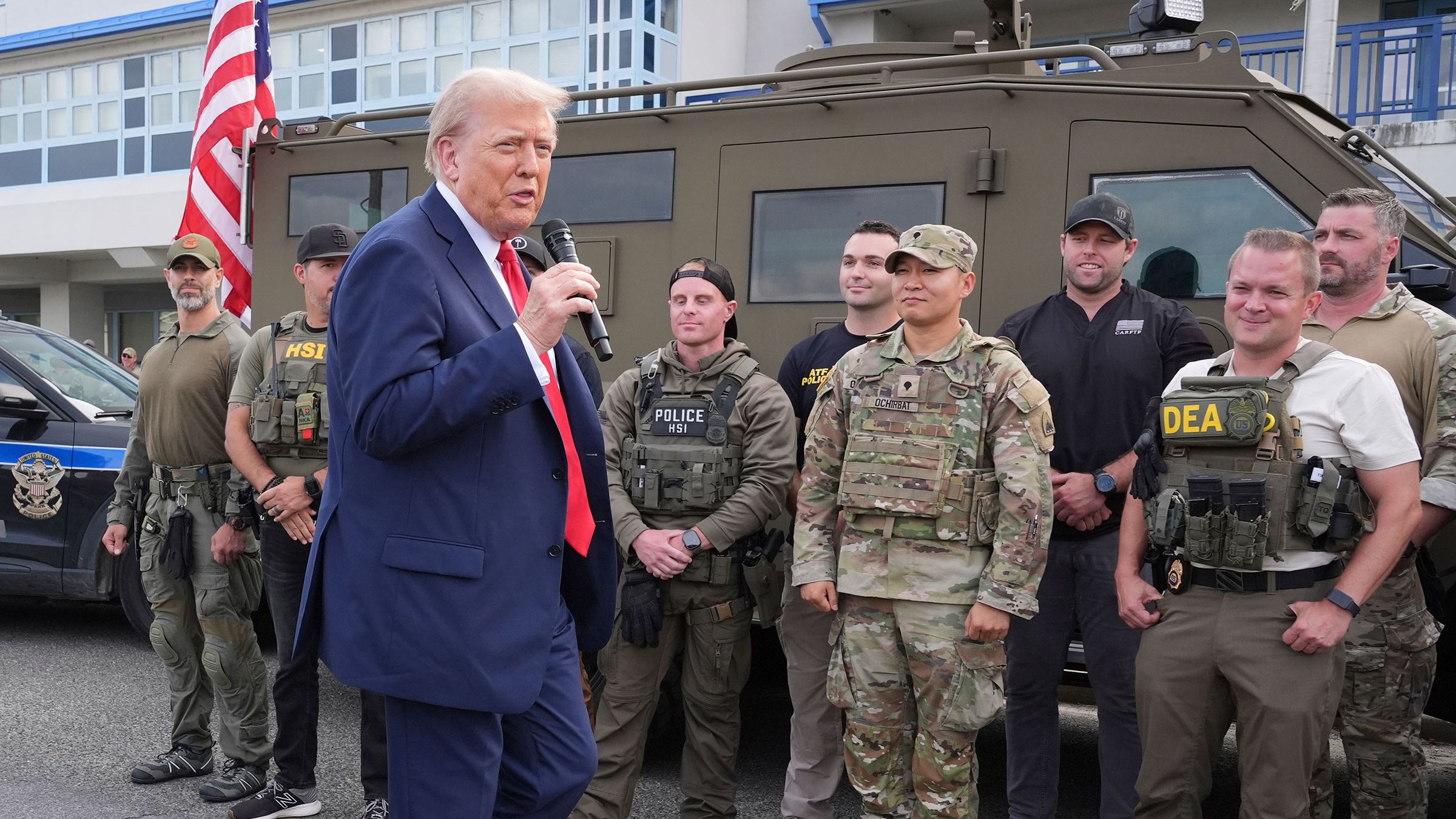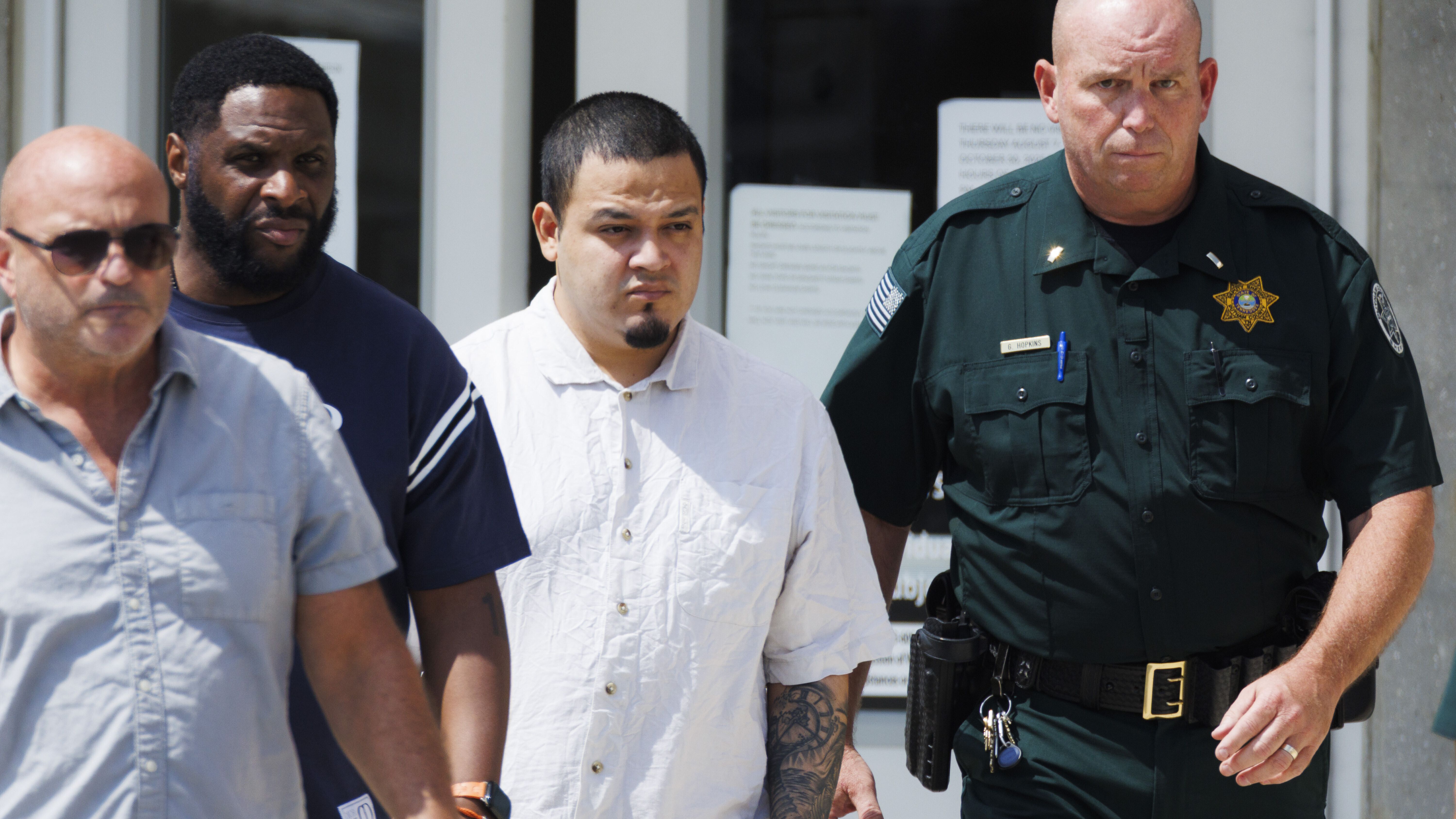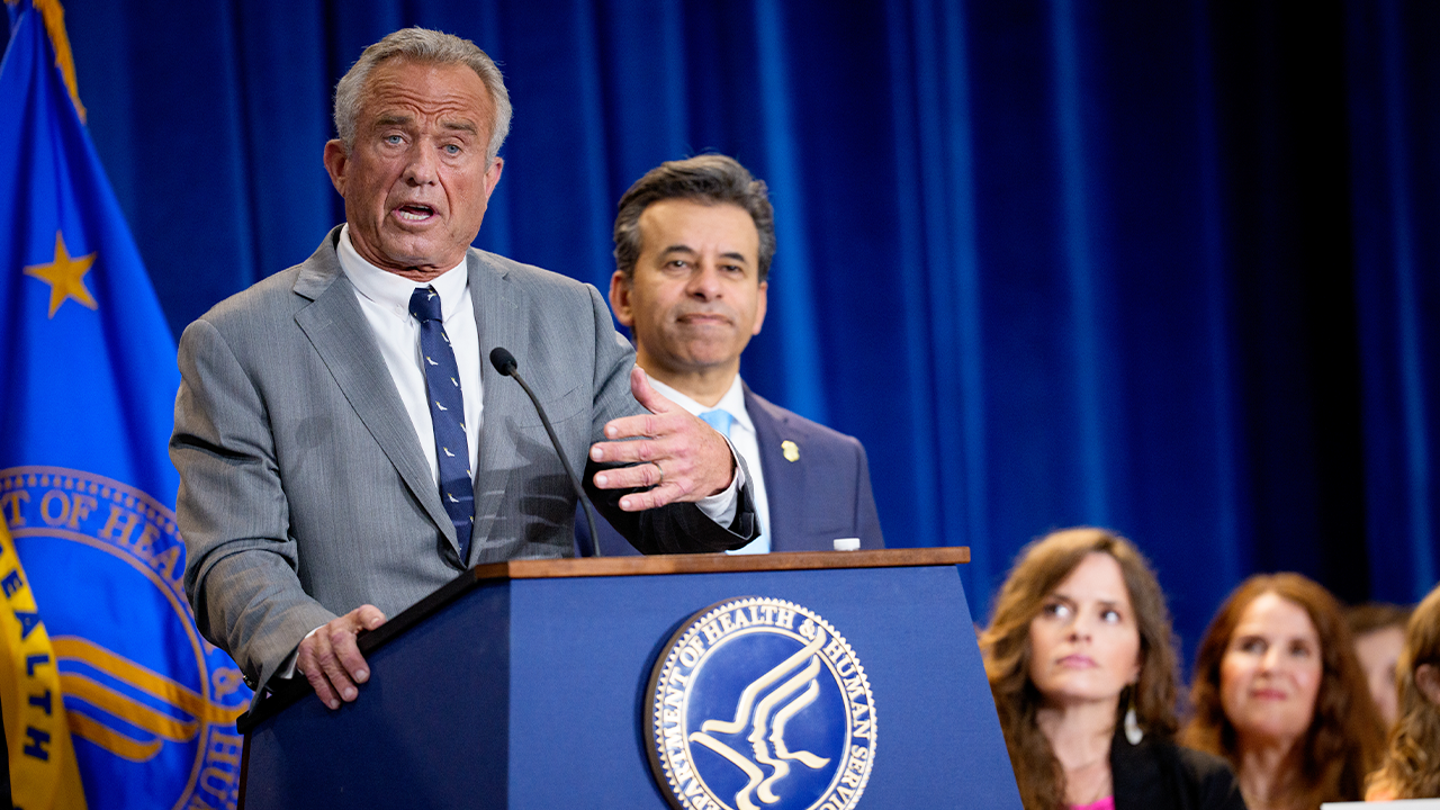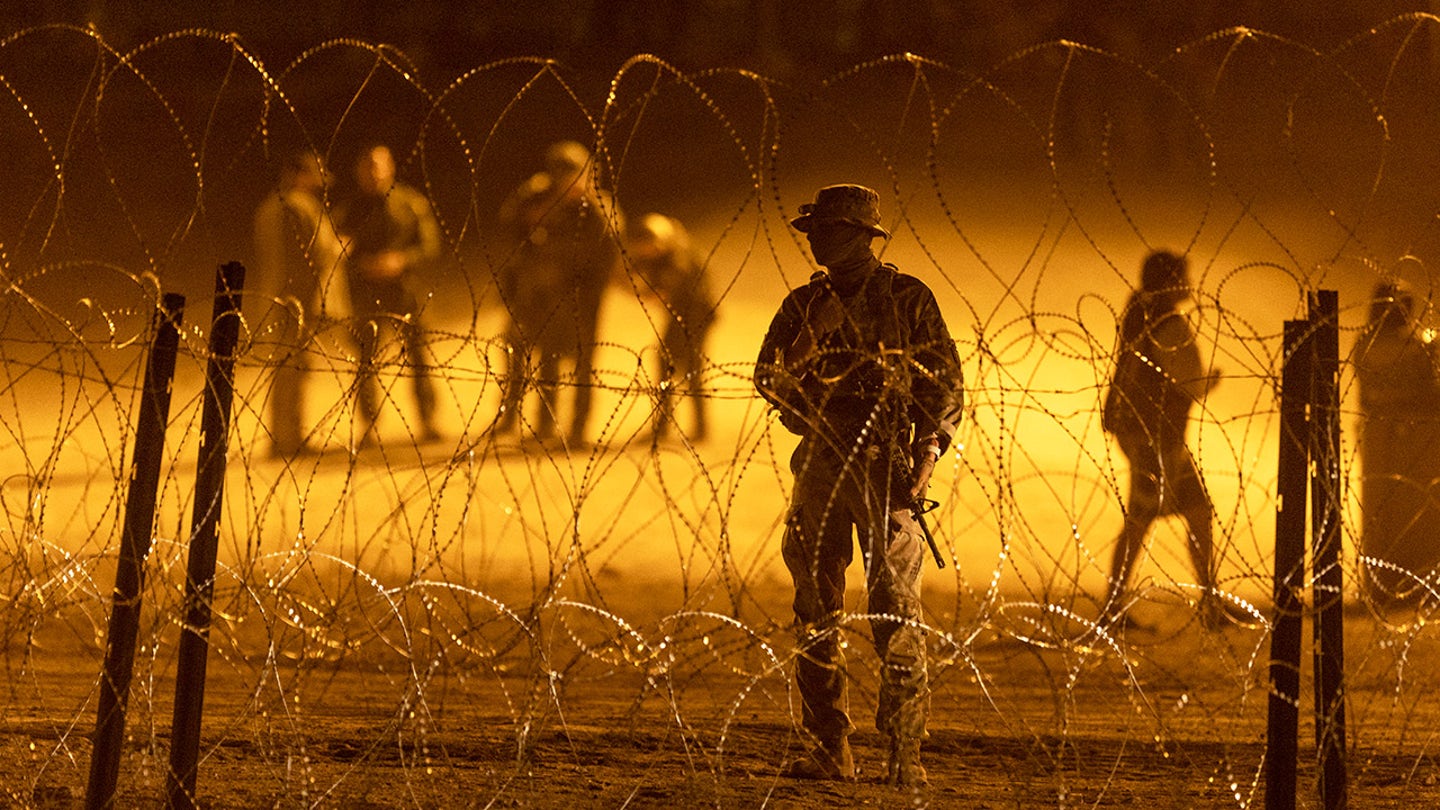
Rubio's major immigration move praised by conservative experts
Entities mentioned:
- Marco Rubio: Security, Righteousness, Influence
- Jessica Vaughan: Security, Righteousness, Professional pride
- Lora Ries: Security, Justice, Professional pride
- David Bier: Professional pride, Obligation, Indignation
- Trump administration: Control, Security, Influence
Article Assessment:
Credibility Score: 65/100
Bias Rating: 70/100 (Lean Right)
Sentiment Score: 35/100
Authoritarianism Risk: 60/100 (Mixed/Neutral)
Bias Analysis:
The article leans right, primarily featuring voices supporting the policy change. While it mentions reaching out to left-leaning groups, their perspectives are not included, creating an imbalance in viewpoint representation.
Key metric: Immigration Policy Effectiveness
As a social scientist, I analyze that this article highlights a significant shift in U.S. immigration policy, specifically targeting commercial truck drivers. The move by Secretary of State Marco Rubio to halt work visas for foreign truck drivers is presented as a response to safety concerns and economic pressures on American workers. This policy change is likely to have substantial impacts on the trucking industry, potentially affecting supply chains and the economy. The article frames the decision as a response to a specific incident, which raises questions about the broader applicability of such a policy. The divergent views presented, from conservative support to criticism from immigration advocates, reflect the complex and contentious nature of immigration policy in the U.S. This policy shift aligns with the broader trend of the Trump administration's restrictive approach to immigration, which could have long-term effects on labor markets and international relations.

Trump says law enforcement crackdown will ‘go on to other places’ during appearance at police facility in DC
Entities mentioned:
- Donald Trump: Power, Control, Recognition
- US Park Police: Duty, Security, Professional pride
- National Guard: Duty, Security, Obligation
- JD Vance: Loyalty, Ambition, Influence
- DC Residents: Freedom, Self-preservation, Indignation
Article Assessment:
Credibility Score: 70/100
Bias Rating: 55/100 (Center)
Sentiment Score: 35/100
Authoritarianism Risk: 65/100 (Authoritarian Tendencies)
Bias Analysis:
The article presents multiple viewpoints, including Trump's statements, opposition from DC residents, and critical perspectives. However, it leans slightly towards emphasizing concerns about the federal intervention, potentially reflecting a slight center-left bias.
Key metric: Public Trust in Government
As a social scientist, I analyze that this article highlights a significant tension between federal authority and local governance in Washington, DC. The expansion of federal law enforcement presence, including the National Guard, into city affairs without local support (79% opposition) indicates a potential erosion of public trust in government. This action, framed as a safety measure by the administration, is perceived differently by residents, suggesting a disconnect between federal intentions and local desires. The potential expansion to other cities could further strain federal-local relations and impact democratic norms, particularly in areas with strong local governance traditions. The emphasis on clearing homeless encampments without clear alternatives also raises concerns about social policy approaches and their impact on vulnerable populations.

GOP governors are sending troops to DC. Their states have 10 cities with higher crime rates
Entities mentioned:
- Republican Governors: Loyalty, Political ambition, Influence
- President Donald Trump: Power, Control, Legacy
- DC Mayor Muriel Bowser: Duty, Security, Professional pride
- Democratic lawmakers and activists: Moral outrage, Justice, Righteousness
- Sen. Thom Tillis: Criticism, Duty, Wariness
Article Assessment:
Credibility Score: 75/100
Bias Rating: 40/100 (Lean Left)
Sentiment Score: 35/100
Authoritarianism Risk: 55/100 (Mixed/Neutral)
Bias Analysis:
The article leans slightly left, evidenced by its critical stance towards Republican governors and Trump's actions. It provides contrasting viewpoints but gives more space to critics of the troop deployments.
Key metric: Violent Crime Rate
As a social scientist, I analyze that this article highlights the complex interplay between federal and state politics, crime statistics, and resource allocation. The deployment of National Guard troops to Washington, DC by Republican governors, despite their own states having cities with higher crime rates, suggests political motivations rather than a genuine focus on addressing crime. This action may be seen as an attempt to support President Trump's agenda and gain political favor, rather than addressing local crime issues. The article raises questions about the effectiveness of such deployments in reducing crime and the potential negative impacts on the communities these troops are leaving behind. It also underscores the importance of data-driven policy-making and the need for a more nuanced approach to addressing crime that goes beyond simply increasing law enforcement presence.

Hegseth orders National Guard troops in DC to carry weapons
Entities mentioned:
- Pete Hegseth: Control, Security, Duty
- National Guard: Duty, Security, Obligation
- Donald Trump: Power, Control, Legacy
- Pentagon: Security, Control, Professional pride
- Joint Task Force - DC: Security, Duty, Control
Article Assessment:
Credibility Score: 70/100
Bias Rating: 55/100 (Center)
Sentiment Score: 35/100
Authoritarianism Risk: 65/100 (Authoritarian Tendencies)
Bias Analysis:
The article presents factual information from official sources but lacks diverse perspectives on the implications of this decision. While it doesn't overtly endorse the move, the framing subtly emphasizes the administration's security narrative without significant critical analysis.
Key metric: Domestic Security and Public Safety
As a social scientist, I analyze that this decision to arm National Guard troops in Washington, DC represents a significant escalation in the federal government's approach to domestic security. This move suggests an intensification of the administration's 'law and order' stance, potentially impacting civil liberties and the balance between security and individual freedoms. The involvement of multiple states' National Guard units indicates a nationalization of what is ostensibly a local law enforcement matter, raising questions about federalism and the appropriate use of military personnel in civilian policing roles. This development may lead to increased tensions between protesters and authorities, potentially exacerbating rather than alleviating social unrest.

Trump says Chicago next up for federal crime crackdown
Entities mentioned:
- Donald Trump: Power, Control, Influence
- Muriel Bowser: Self-preservation, Control, Duty
- Brandon Johnson: Self-preservation, Duty, Security
- JB Pritzker: Moral outrage, Duty, Security
- Mike Johnson: Loyalty, Power, Influence
- John Thune: Loyalty, Power, Influence
Article Assessment:
Credibility Score: 65/100
Bias Rating: 55/100 (Center)
Sentiment Score: 30/100
Authoritarianism Risk: 70/100 (Authoritarian Tendencies)
Bias Analysis:
The article presents multiple viewpoints, including Trump's statements and responses from local officials. However, it leans slightly towards skepticism of Trump's claims, particularly in fact-checking crime statistics.
Key metric: Violent Crime Rate
As a social scientist, I analyze that this article highlights a potential shift in federal-local power dynamics regarding law enforcement. Trump's proposed actions in Chicago, following interventions in Washington D.C., suggest an expansion of federal authority over local policing. This approach could significantly impact the violent crime rate, either positively through increased law enforcement presence or negatively by escalating tensions. The conflicting narratives between federal and local officials about crime statistics and the effectiveness of interventions raise questions about data integrity and the actual impact on public safety. The president's rhetoric and actions also indicate a centralization of power that could alter the traditional balance between federal and local governance in law enforcement matters.

Kilmar Abrego Garcia has been released from criminal custody, 5 months after he was unlawfully deported
Entities mentioned:
- Kilmar Abrego Garcia: Justice, Freedom, Self-preservation
- Trump administration: Power, Control, Righteousness
- CASA: Justice, Moral outrage, Unity
- Sean Hecker: Justice, Professional pride, Duty
- Federal prosecutors: Duty, Justice, Control
- Judge Waverly Crenshaw: Justice, Duty, Righteousness
- Judge Paula Xinis: Justice, Duty, Righteousness
- ICE: Control, Duty, Security
- Simon Sandoval-Moshenberg: Justice, Moral outrage, Duty
Article Assessment:
Credibility Score: 75/100
Bias Rating: 40/100 (Lean Left)
Sentiment Score: 35/100
Authoritarianism Risk: 25/100 (Generally Democratic)
Bias Analysis:
The article leans slightly left, emphasizing the perspective of Abrego Garcia and his attorneys while presenting government actions critically. However, it does include multiple viewpoints and court decisions, maintaining a degree of balance.
Key metric: Immigration Enforcement and Due Process
As a social scientist, I analyze that this case highlights significant issues in the U.S. immigration system, particularly regarding due process and the potential for wrongful deportation. The article demonstrates a complex interplay between judicial, executive, and advocacy entities, each with distinct motivations. The case of Kilmar Abrego Garcia reveals tensions between strict immigration enforcement policies and constitutional rights, potentially impacting public trust in government institutions and the fairness of the immigration system. The involvement of multiple federal judges issuing contradictory rulings underscores the complexity of immigration law and the potential for conflicting interpretations. This case may serve as a precedent for similar cases, potentially influencing future immigration enforcement practices and policies.

Judge blocks Trump from cutting funding from 34 cities and counties over ‘sanctuary’ policies
Entities mentioned:
- Judge William Orrick: Justice, Duty, Righteousness
- Trump administration: Control, Power, Determination
- Sanctuary cities/counties: Security, Unity, Moral outrage
- President Donald Trump: Ambition, Power, Legacy
- Department of Homeland Security: Control, Security, Duty
- Immigration and Customs Enforcement (ICE): Control, Duty, Security
Article Assessment:
Credibility Score: 75/100
Bias Rating: 45/100 (Center)
Sentiment Score: 40/100
Authoritarianism Risk: 35/100 (Generally Democratic)
Bias Analysis:
The article presents facts from both sides of the issue, including the administration's actions and the judge's ruling. While it gives more space to the judge's decision, it also includes the administration's perspective, maintaining a relatively balanced approach.
Key metric: Immigration Enforcement Effectiveness
As a social scientist, I analyze that this ruling significantly impacts the Trump administration's ability to enforce its immigration policies through financial pressure on sanctuary jurisdictions. The court's decision to block funding cuts to these cities and counties undermines a key strategy of the administration to compel local cooperation with federal immigration efforts. This judicial intervention represents a substantial challenge to the executive branch's authority in immigration enforcement, potentially reducing the overall effectiveness of deportation efforts and the administration's ability to fulfill campaign promises. The conflict between federal and local governments over immigration enforcement highlights deep political divisions and raises questions about the balance of power between different levels of government in the US federal system.

Trump-aligned legal group probes Biden-era organ transplant program over ethical concerns
Entities mentioned:
- America First Legal: Justice, Righteousness, Wariness
- Stephen Miller: Loyalty, Influence, Control
- Department of Health and Human Services: Duty, Professional pride, Security
- Centers for Medicare & Medicaid Services: Duty, Professional pride, Security
- Health Resources and Services Administration: Duty, Professional pride, Security
- Robert F. Kennedy Jr.: Righteousness, Moral outrage, Recognition
- Laura Stell: Justice, Righteousness, Professional pride
- Trump administration: Power, Control, Influence
Article Assessment:
Credibility Score: 70/100
Bias Rating: 65/100 (Lean Right)
Sentiment Score: 35/100
Authoritarianism Risk: 40/100 (Generally Democratic)
Bias Analysis:
The article leans right due to its focus on Trump-aligned groups and their concerns, as well as the 'FIRST ON FOX' label. While it presents some factual information about the organ transplant program, it gives more weight to criticisms from Trump-aligned sources.
Key metric: Healthcare System Effectiveness
As a social scientist, I analyze that this article highlights a conflict between the Biden administration's efforts to improve organ transplant access and concerns raised by Trump-aligned groups about potential ethical issues and outside influences. The investigation by America First Legal into the Increasing Organ Transplant Access Model reflects ongoing political tensions in healthcare policy. This situation could impact the Healthcare System Effectiveness metric by potentially delaying or altering the implementation of a program designed to increase organ transplant access. The controversy may lead to increased scrutiny of healthcare policies, which could either improve transparency and effectiveness or create obstacles to implementing potentially beneficial reforms. The political nature of the investigation also underscores the challenges of implementing major healthcare changes in a polarized environment.

Pentagon unveils new medal for troops deployed in Trump’s southern border crackdown
Entities mentioned:
- Pentagon: Duty, Recognition, Professional pride
- President Donald Trump: Control, Security, Legacy
- U.S. Troops: Duty, Recognition, Patriotism
- Customs and Border Protection: Security, Control, Duty
- Joint Task Force Southern Border: Security, Control, Duty
- Air Force Gen. Gregory Guillot: Duty, Security, Professional pride
Article Assessment:
Credibility Score: 75/100
Bias Rating: 55/100 (Center)
Sentiment Score: 45/100
Authoritarianism Risk: 65/100 (Authoritarian Tendencies)
Bias Analysis:
The article presents mostly factual information from official sources, maintaining a relatively neutral tone. However, the inclusion of quotes from military officials without balancing perspectives may slightly favor the administration's stance on border security.
Key metric: Border Security and Immigration Enforcement
As a social scientist, I analyze that this article reflects a significant shift in how the U.S. military's role at the southern border is being recognized and potentially expanded. The creation of a new medal specifically for border operations elevates the perceived importance of this mission, potentially affecting troop morale and public perception of border security efforts. The establishment of 'national defense areas' along the border, granting military jurisdiction, represents a notable expansion of military authority in domestic law enforcement activities. This could have implications for civil liberties and the traditional separation between military and domestic policing roles. The article suggests an increasing militarization of border security, which may impact diplomatic relations with Mexico and domestic debates on immigration policy.

Zelenskyy seeks 'strong reaction' from US if Putin is not ready for bilateral meeting
Entities mentioned:
- Volodymyr Zelenskyy: Determination, Justice, Self-preservation
- Vladimir Putin: Power, Control, Influence
- Donald Trump: Ambition, Recognition, Influence
- United States: Influence, Security, Unity
- Russia: Power, Control, Influence
- Ukraine: Self-preservation, Freedom, Justice
Article Assessment:
Credibility Score: 75/100
Bias Rating: 45/100 (Center)
Sentiment Score: 40/100
Authoritarianism Risk: 35/100 (Generally Democratic)
Bias Analysis:
The article presents a relatively balanced view, quoting multiple sides and sources. It leans slightly towards a Western perspective but attempts to provide context from all parties involved.
Key metric: International Diplomatic Influence
As a social scientist, I analyze that this article highlights the complex diplomatic maneuvering in the ongoing Russia-Ukraine conflict, with the United States playing a central mediating role. Zelenskyy's call for a 'strong reaction' from the US if Putin declines a bilateral meeting suggests Ukraine's reliance on US support and pressure tactics. Trump's involvement indicates the US's continued influence in international affairs, despite potential domestic controversies. The article underscores the delicate balance of power dynamics, with each leader pursuing their own agenda while navigating the constraints of international diplomacy. The emphasis on territorial concessions and security guarantees reflects the high stakes involved in any potential peace agreement, highlighting the challenges in resolving long-standing geopolitical conflicts.